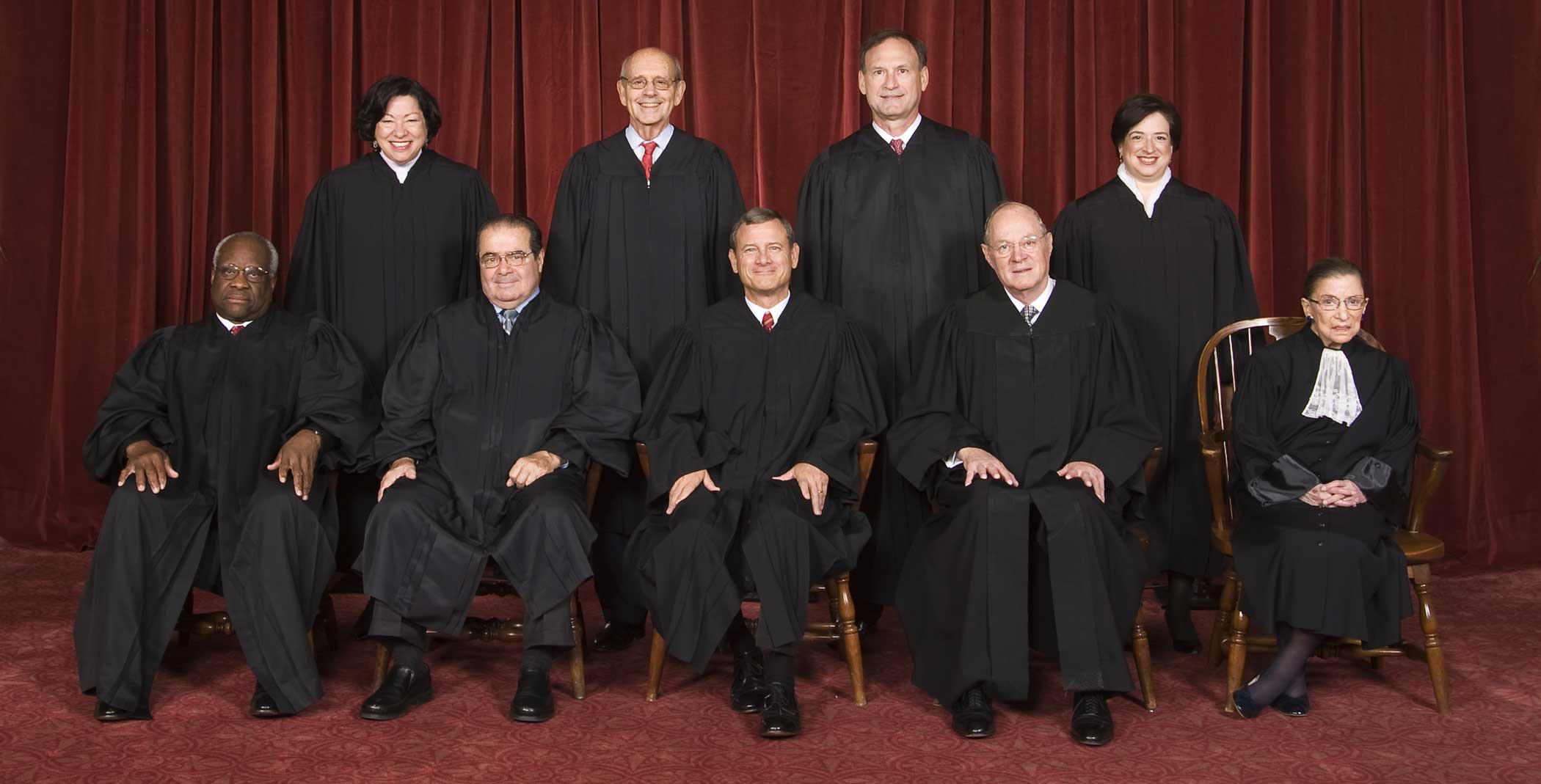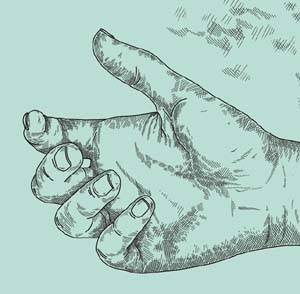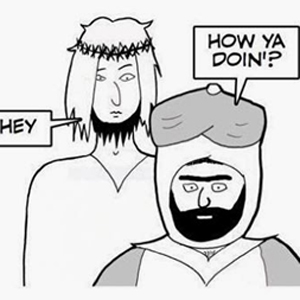
But while religion dominated the debate on the streets, it played a more subtle role inside the courtroom. The bloc of Conservative, male Justices are all strident Catholics, along with the so-called swing Justice, Anthony Kennedy, and the unabashedly progressive Sonia Sotomayor. The five male Catholic Justices voted together in striking down the use of a controversial late-term abortion procedure, dubbed “partial birth abortion,” in 2006 and have not shied away from social issues. And no one is more outspoken when it comes to American culture wars than Justice Antonin Scalia, who wrote a dissenting opinion in a 2003 case striking down the remaining state anti-sodomy laws in which he warned of the “homosexual agenda,” and derided it as against the mainstream, national moral compass; a tamer version of his ravings against the gay community in a 1996 case.
While Justice Kennedy is hardly liberal, he did author both previous gay-rights cases that Scalia railed against. While that may augur well for the gay community, there are still a number of questions that could lead to a less-than-favourable outcome in the two landmark cases which just reached the High Court: Hollingsworth v. Perry and United States v. Windsor.
Perry deals with a challenge to California’s Proposition 8, a ballot initiative passed in 2008 after an aggressive campaign spearheaded by Roman Catholic organizations and the Mormon Church. The initiative was pushback against the California Supreme Court’s earlier ruling that same-sex couples had a constitutional right to marry. In the months between this ruling and the voter-led amendment to the California State Constitution forbidding same-sex unions, around 18,000 gay couples tied the knot. Two legendary attorneys, Ted Olson and David Boies, who argued against each other in the 2000 Supreme Court decision which gave George W. Bush the presidency, brought a legal challenge against the initiative. Both the district court and Court of Appeal agreed that the law was unconstitutional.
When the case reached the Supreme Court, the bulk of the questioning from the Justices concerned the issue of standing. Some of the Justices even questioned why they had taken the case at all. Since it only takes four Justices to grant certiorari and hear a case decided by a lower court, the Conservative wing of the Court may have actually sought to take the case, perhaps recognizing that with public opinion turning in favour of gay marriage this might be their last chance to halt that momentum.
Among those questioning whether the case should even be heard was Kennedy. He suggested that instead of ruling gay marriage bans unconstitutional nationwide (half the states currently have such prohibitions) it might be preferable to rule that that there was no legitimate standing in the case, effectively allowing the initial district court decision and legal conclusions to stand. This would mean that Proposition 8 would be struck down and gay marriage would be legal in California, but that no other laws against gay marriage in other states would be impacted. It would mean a prolonged period of time in America in which state legislatures battled social conservatives, and their evangelical base, in seeking to enact gay marriage rights.
Windsor, the second case heard by the court, could be more of a slam dunk for gay-rights proponents. The law being challenged for constitutionality is the 1996 Defence of Marriage Act signed by President Bill Clinton, which bars the federal government from recognizing same-sex marriages in states where they are permitted. The law affects everything the federal government touches, from tax breaks to spousal survivor benefits and the legal status of bi-national gay couples seeking to stay together in the United States. Marriage laws have traditionally been left to states rather than the federal government and the law appears to be in violation of the Tenth Amendment regarding states’ rights, a favourite of Conservatives on the court. Given his past history and questioning during oral arguments, there is good reason to believe Kennedy may join the liberal Justices and strike down the law.
Chief Justice John Roberts may be the unlikely wild card in both cases. Although a strong conservative voice generally, Roberts shocked many commentators last summer by providing the decisive vote upholding President Obama’s signature health care law. The Chief Justice seems to have an eye on his legacy, and how history will remember his tenure leading the highest court in the nation, which may explain his vote to save the Affordable Care Act. Similarly, sensing that the headwinds in the US are blowing in favour of gay marriage, he may vote with the liberal Justices to strike down Proposition 8 (less likely), or hold the Defence of Marriage Act unconstitutional (more likely). The decisions will not be released until June, and the outcome for both is unclear. The only thing we can count on for sure is that Scalia will say something rude and disparaging about homosexuals. But that may be all that evangelicals have to cheer about.
Aaron Rosen is a Lecturer in Theology at King’s College London. His brother Isaac Rosen will graduate this spring from the University of California, Hastings College of the Law.

